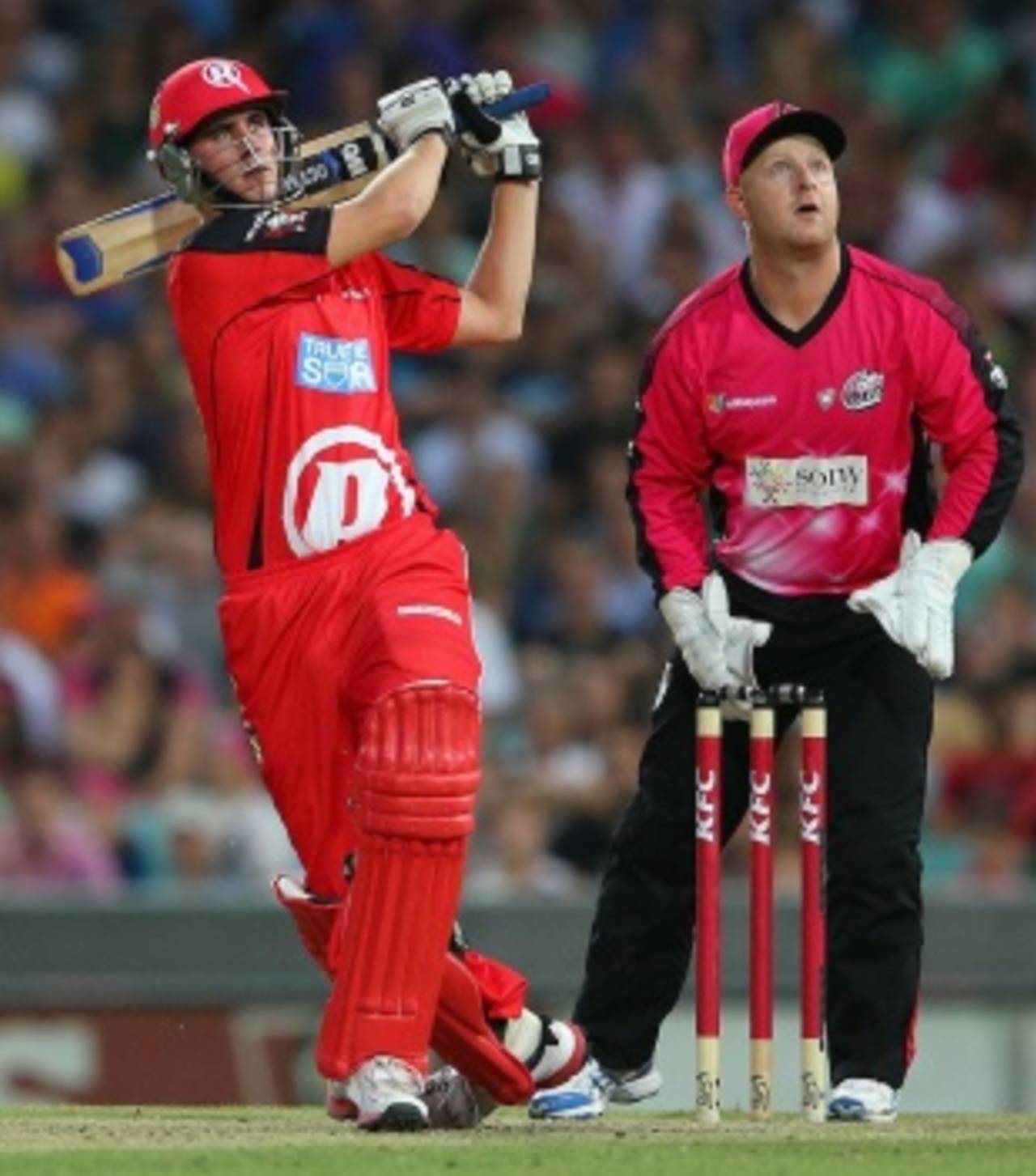Franchises and future stars
Cricketers runs, wickets and catches are determined by their own talent, for sure, but they are typically also the result of a hidden multi-year investment by a cricket club, board, or association that was never guaranteed to bear fruit
Aashish Pattani
Feb 25, 2013, 11:38 PM

Is franchise T20 cricket undermining investment in the next generation of players? • Getty Images
Cricketers are not produced in a vacuum. Their runs, wickets and catches are determined by their own talent, for sure, but they are typically also the result of a hidden multi-year investment by a cricket club, board, or association that was never guaranteed to bear fruit.
But the recent increase in player mobility, and the emergence of all-new franchise T20 teams, could stunt this investment in the next generation. This could leave the game with an embarrassing paucity of talent in a decade's time.
Take Alex Hales. A few promising performances for England's T20 team, coupled with a brutal 52-ball 89 for the Melbourne Renegades, have undoubtedly raised the eyebrows of T20 franchise bosses across the globe. Yet Hales remains steadfastly committed to Nottinghamshire, the club that have nurtured him since 2007. He has recently withdrawn from the Bangladesh Premier League, and is not participating in this year's IPL auction at his county's behest.
But despite this recent loyalty, it is inconceivable that Notts would be able to prevent him participating in future franchise T20 tournaments, particularly if he shows no signs of gaining international honours in ODIs or Tests. This could see Hales' availability for Notts plummet, as he takes advantage of the lucrative contracts that will fly his way, and risks getting injured or exhausted in the process.
It is not entirely fanciful that Hales could open the batting for seven different clubs in 2013-14, after Notts domestic T20 campaign is complete. First, he could appear for Kandurata Warriors (SLPL) in August, the Matabeleland Tuskers (Zim) in October, then fly over to the Melbourne Renegades in December. In the new year he'd cross the Tasman for a stint with the Otago Volts, and via Duronto Rajshahi (BPL) in February and Sialkot (PSL) in March, pad-up for Pune Warriors (IPL) in April. Not bad for the "off" season.
But the increase in Hales' mobility raises the warning flag for investment in the next generation. The growing band of short-termist franchises will be satisfied they can buy the players via auction, so have no incentive to invest in developing a promising teenager themselves.
And, aware of the poachers' threat, teams like Notts could be less keen to develop the next Hales, as they might not be able to reap the benefits of his services. The slow severing of this symbiotic relationship between players and clubs could lead to a collective under-investment, and trigger a famine of high-class players in ten years' time.
Domestic administrators are alive to this - hence the restrictions on overseas and young domestic players that pervade many tournaments. But this may not be enough to cure the cross-border problem. With ten countries all looking to host domestic T20 competitions, and a growing number of "new" teams, tournaments will continue to expand and overlap, and more sides may be irked about losing access to their poached players.
Jamaica's exasperation at having to cope without the services of Chris Gayle due to his Big Bash commitments could become the norm rather than the exception, as Peter Trego's commitments to Sylhet take him away from Taunton, and Sachithra Senanayake's Sydney Sixers' contract forces him to sit out of Sinhalese Sports Club action.
Limiting the number of different teams that a cricketer can play for is one possible, but extreme, option. This could increase the certainty of a team that their man will be available for their use in future. And it could help avoid the bizarre situation from 2011's Champions' League, where Kieron Pollard lined up for the high-paying Mumbai Indians against his home team T&T, (not to mention him also having helped Somerset and South Australia to qualify for the same tournament).
Or perhaps greater co-operation between teams in different countries is what's needed. Global partnerships could jointly develop players, with the participating teams being able to secure and share a player's services throughout the calendar year. Indeed, Hampshire and Rajasthan Royals attempted an ill-fated partnership deal in 2010, a move which no others have attempted to follow.
But, as a way to ensure that the next generation of players is able to benefit from the investment needed to turn a prospect into a pro, and teams don't live in fear of the poachers, perhaps it's just what the global game needs. A joint alliance between Wellington, Perth, Glamorgan and Hyderabad could be good for the teams of 2024, and the investment of the "Firebirds Scorching Dragons at Sunrise" partnership might just be good for the players too.